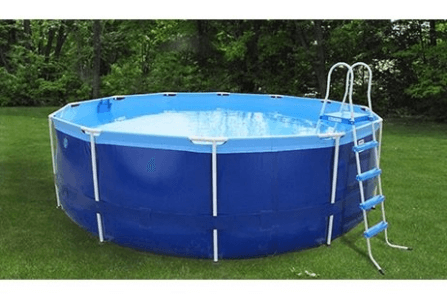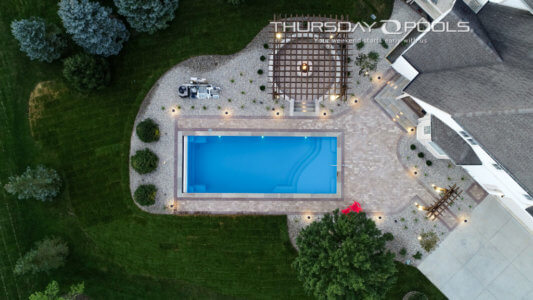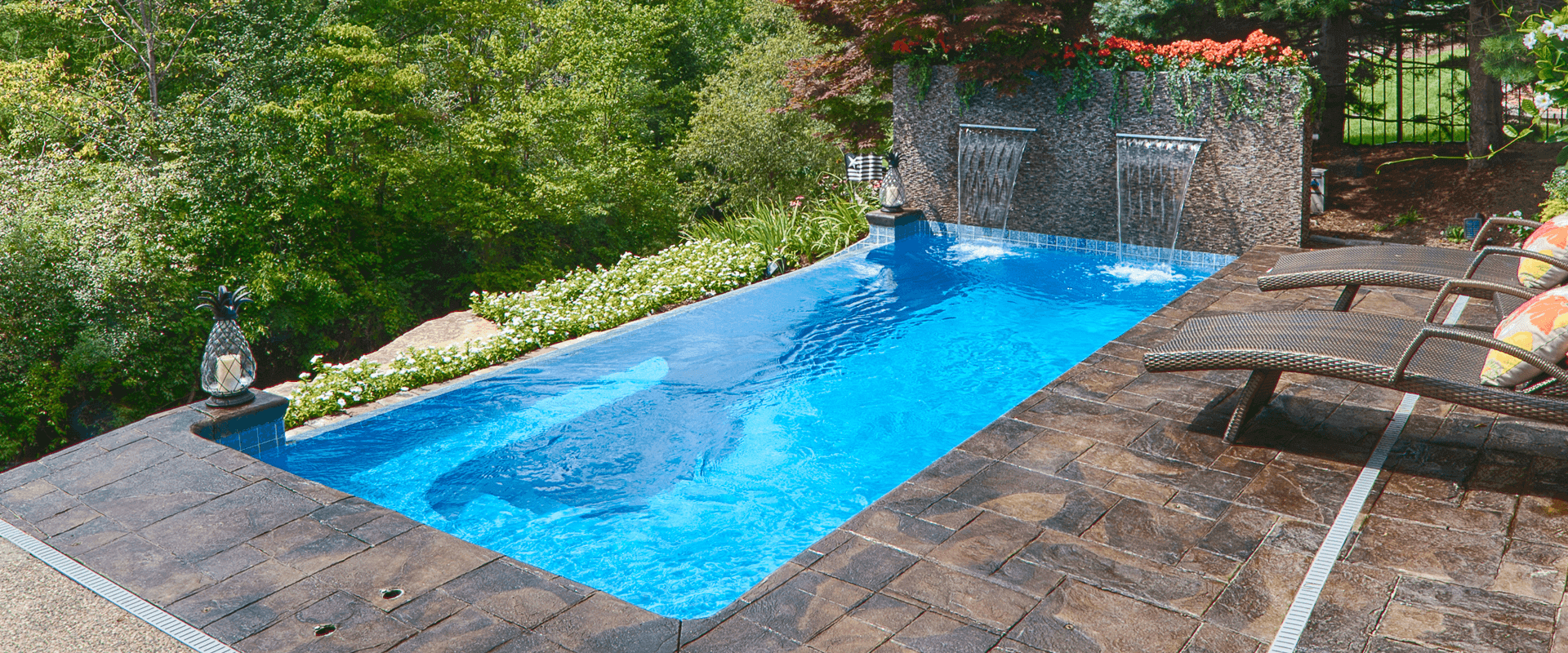877-929-7665
Should I Buy an Inground or an Above Ground Pool?
Getting a new swimming pool is a huge deal requiring careful planning and exploration. Given that you can roll years of vacation travel and expense into one backyard “stay-cation” that can pay dividends year in and year out, your decision to buy a pool is actually an investment decision. Like any investment, you should consider your options well. One of the first choices you’ll be faced with is between above ground pool vs inground pool. If you choose an above ground pool, you’ll be getting a vinyl liner pool, as that’s the only type of pool offered in above-ground styles. If you choose an inground pool, you’ll be choosing between three pool types. In addition to a vinyl liner pool, you’ll also have the options of gunite (concrete) or a fiberglass inground pool.

Let’s take a look at some of the factors to consider between above ground and inground pools, as well as the feature options and pricing to help you narrow the field.
- Where you live. This should be your first consideration when you’re choosing what type of pool is right for you because the choice may not be yours. Some homeowners’ associations do not allow above ground pools and may even dictate what type of inground pool you can install in your backyard. So, check any local bylaws before you spend time doing any other research.
- Pool Cost. If your budget is limited, and you’re really only interested in having a place to cool off every once in a while, you might prefer an above ground vinyl liner pool. Do-it-yourselfers can find above ground pool kits are the least expensive, starting at around $1,500. Inground vinyl pools (installed) can cost up to ten times more, with small fiberglass pools (installed) costing between $20,000 and $40,000. Gunite pools (installed) will run between $30,000 and $50,000.
- Installation time. Above ground pool kits are designed to snap together, so you could be swimming in a day. By contrast, inground vinyl liner pools will take an average of 30 days to install while gunite pools can take as long as 90 days (in good weather). Because the fiberglass shells are manufactured and shipped in one piece, inground fiberglass pools can be installed in as little as two weeks.
- Maintenance. While the low upfront cost of an above ground pool might be tempting, you should be prepared to spend more time and money on pool maintenance. Gunite pools will need to be resurfaced every 7-10 years, at an average cost of $15,000. However, fiberglass pools never need to be resurfaced and require the least amount of chemicals to maintain.
- Resale value. In most areas, inground pools improve home value, whereas above ground pools will not. I
- Aesthetics. In terms of overall beauty, above ground pools simply cannot compare to inground pools. The compromise you’ll make in terms of upfront cost and minimal installation time means that you’ll be looking out the window at a large object sitting in the middle of your yard, just as you would a jungle gym, swing set or trampoline. Also, if you decide to get rid of your above ground pool, you’ll need to reseed or re-sod your lawn.

Any type of inground pool offers you the ability to landscape around it, create specialty decking and add in ambiance-enhancing lighting. With gunite pools, you can choose any kind of custom shape you can imagine (but your cost will reflect that). With a quality fiberglass pool, you can choose from a huge assortment of shapes, sizes and colors, so you can get a custom look at no extra charge. You’re sure to find one that perfectly complements your backyard and your home’s overall look and feel.
In a nutshell, above ground pools are an option if:
- Your homeowners’ association allows it.
- You just want a quick and inexpensive way to cool off and pool cost is a big part of your decision.
- The overall look of your backyard isn’t that big of a deal to you.
- You might be moving soon and want to be able to take your pool with you.
- You understand that you might be trading some of your upfront savings for additional repair and maintenance costs down the line.
Inground pools are great if:
- Your homeowners’ association requires inground pool installation.
- Your inground pool cost budget allows for the upfront investment, or you are able to finance your new pool purchase.
- Your home’s resale value and the overall look of your backyard oasis are important to you.
- You’re planning to stay in your home a while to make your upfront investment worthwhile.
- You’re ready to create a place that will allow you to have quality family time together for many years to come.
